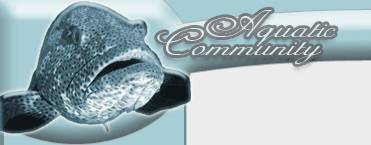Masticatory muscle myositis in dogs
What is Masticatory muscle myositis?
Masticatory muscle myositis, commonly abbreviated MMM, is an inflammatory disease the affects the jaws of the dog. The jaw of the dog swells up and it can be difficult for the dog to open its mouth. The condition is painful. Chronic MMM can cause scar formation that makes it impossible for the dog to open its mouth. Masticatory muscle myositis is known under several different names, including atrophic myositis and eosinophilic myositis.
The term masticatory tells us that this disease involves the part of the dog’s body involved in mastification, i.e. chewing. When the dog chews, it uses the large muscles located on the top and sides of the head. These muscles distinguish themselves from other muscles by having a unique muscle protein composition. In a dog suffering from masticatory muscle myositis, the dog’s own immune system attacks a special muscle protein that is only found in these masticatory muscles. If we take a closer look inside the jaw of a dog, we will find so called 2M fibres in the masticatory muscles. These 2M fibres are quite similar to proteins present on the surface of bacteria, and this is probably why the dog’s immune system goes berserk and tries to destroy the dog’s own muscles. When the immune system attacks the muscles, the result is an inflammation.
Masticatory muscle myositis is the most commonly occurring inflammatory myopathy in dogs. (A myopathy is a neuromuscular disease where the muscles fibres do not function as they should, and masticatory muscle myositis is one of many different forms of myopathy.)
Dogs at risk
Masticatory muscle myositis is chiefly a problem for large dog breeds, especially German Shepherds. Other examples of breeds commonly affected by MMM are the Springer Spaniel and the English Pointer.
A similar disease is known to cause eye muscle problems in Golden Retrievers.
Masticatory muscle myositis symptoms in dogs
A dog with acute Masticatory muscle myositis can show symptoms such as swollen jaw muscles and drooling, and it can be painful for the dog to open up the mouth.
Chronic Masticatory muscle myositis causes jaw muscles atrophy and scars will form in the masticatory muscles. The scars can make it impossible for the dog to open its mouth, a condition known as trismus.
Masticatory muscle myositis treatment for dogs
The most commonly used Masticatory muscle myositis treatment is to give the sick dog corticosteroids (glucocorticoids), e.g. Prednisone. In most cases, the dose should be gradually decreased over the course of 4-6 months to prevent relapses.
If the dog suffers from trismus, it can be necessary to open the mouth manually while the dog is under anaesthesia.
A dog with eating problems needs very soft or even liquid food.
Whether or not your dog will regain 100% of its previous jaw function and muscle mass after the MMM treatment depend greatly upon how much damage that occurred to the muscle tissue. In some dogs, masticatory muscle myositis turns into a reoccurring problem.
N.B! Masticatory muscle myositis is sometimes mistaken for a retroorbital abcess and the veterinarian will then attempt to treat the problem with antibiotics. Antibiotics can not be used to cure masticatory muscle Myositis.
Skeletal and muscular disorders in dogs: (click for more info)
Canine hip dysplasia
Congenital vertebral anomalies in dogs
Craniomandibular osteopathy in dogs
Elbow dysplasia in dogs
Hypertrophic Osteodystrophy in dogs
Hypertrophic Osteopathy in dogs
Legg-Calvé-Perthes syndrome in dogs
Luxating patella in dogs
Masticatory muscle myositis in dogs
Masticatory Muscle Myositis (MMM) and Extraocular Myositis (EOM) in dogs
Osteoarthritis in dogs
Osteochondritis Dissecans in dogs
Panosteitis in dogs
Spondylosis in dogs
